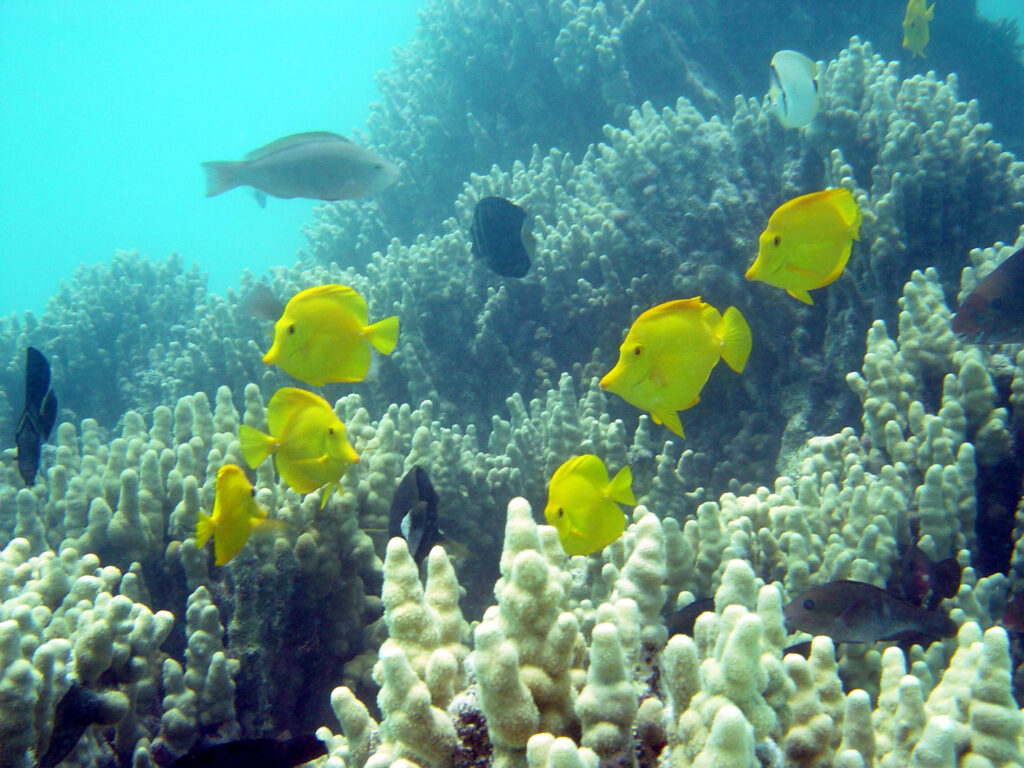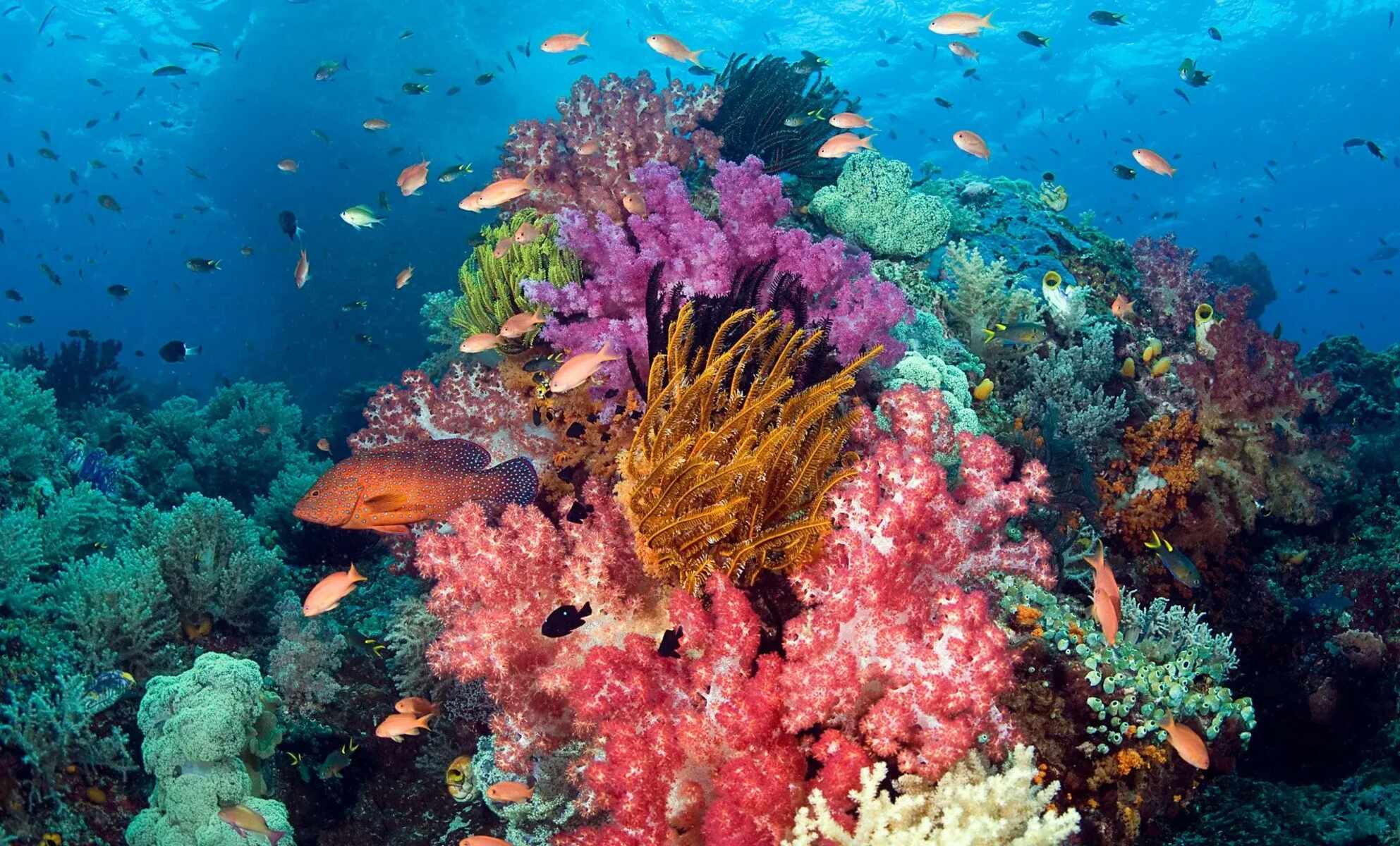Hawaii’s coral reefs are not only beautiful and vibrant ecosystems, but they also play a crucial role in maintaining the health and balance of the oceans. With their unique biodiversity and breathtaking coral formations, these reefs deserve our utmost respect and protection. In this article, you will discover why it is essential to safeguard Hawaii’s coral reefs, as well as simple yet effective ways to ensure their long-term preservation. By taking a proactive approach and making small changes in our daily habits, we can all contribute to the conservation of these invaluable natural wonders.
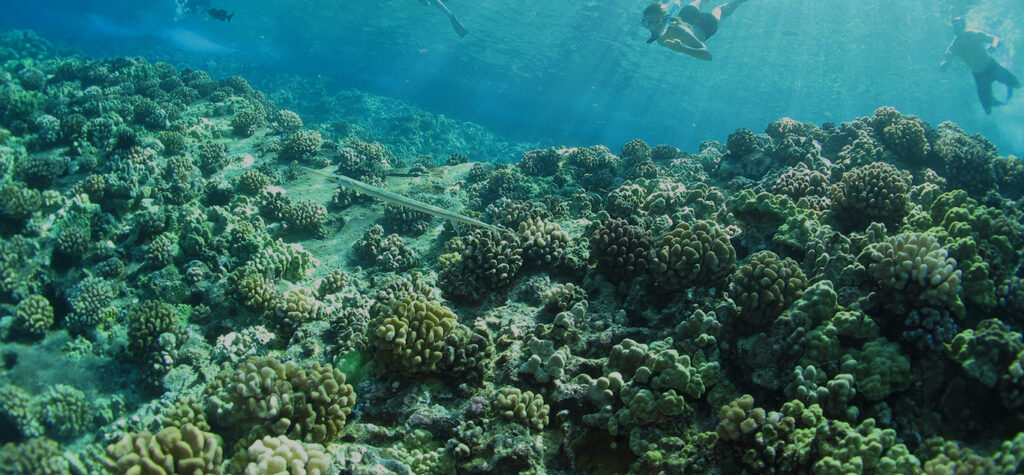
Understanding the Importance of Hawaii’s Coral Reefs
The Ecological Significance of Coral Reefs
Hawaii’s coral reefs play a vital role in the overall health and balance of its marine ecosystems. They support an incredibly diverse array of marine species, providing essential habitats for fish, crustaceans, mollusks, and countless other organisms. Coral reefs are often referred to as the “rainforests of the sea” due to their high levels of biodiversity. They serve as nursery grounds for many juvenile fish species, ensuring the survival and growth of populations. Additionally, coral reefs provide protection and shelter for marine animals, acting as a buffer against storms and wave energy.
The Economic Value of Coral Reefs
Hawaii’s coral reefs are of immense economic importance to the state. They significantly contribute to the tourism industry, attracting visitors from all over the world who come to explore the vibrant and colorful underwater world. Snorkeling, diving, and other recreational activities centered around coral reefs generate substantial revenue for local businesses. Coral reefs also support commercial fishing activities, providing a source of food and livelihoods for many communities. In fact, it is estimated that coral reef-related activities contribute billions of dollars each year to Hawaii’s economy.
The Cultural and Historical Importance of Coral Reefs
Coral reefs hold deep cultural and historical significance for the people of Hawaii. These beautiful and delicate ecosystems have been an integral part of Hawaiian culture for centuries, ingrained in native traditions and customs. They feature prominently in ancient Hawaiian mythology and folklore, representing a connection to the natural world and the ancestors. Coral reefs also hold historical value as they served as navigation markers for early Polynesian voyagers, enabling their successful migration to the Hawaiian Islands. Protecting and preserving coral reefs is not only essential for the environment and economy but also for the preservation of Hawaiian heritage and the promotion of cultural identity.
Threats to Hawaii’s Coral Reefs
Climate Change and Ocean Acidification
The increasing impacts of climate change, such as rising sea temperatures and ocean acidification, pose significant threats to Hawaii’s coral reefs. Coral bleaching events, where corals expel the algae that gives them their vibrant colors, have become more common and severe due to rising water temperatures. This leads to the eventual death of corals if they do not recover. Furthermore, ocean acidification, caused by the absorption of excess carbon dioxide, weakens corals’ ability to build and maintain their skeletal structures, making them more susceptible to other stressors.
Overfishing and Destructive Fishing Practices
Overfishing and destructive fishing practices have had a detrimental impact on Hawaii’s coral reefs. Unsustainable fishing practices, such as the use of explosives or cyanide to capture fish, can destroy the delicate coral structures and habitats. Additionally, overfishing can disrupt the balance of marine ecosystems by depleting key fish species that help maintain the health and resilience of coral reefs. This disruption can trigger harmful algal blooms and promote the proliferation of coral-killing crown-of-thorns starfish, further exacerbating the degradation of coral reefs.
Pollution and Runoff
Pollution and excessive runoff from land-based activities pose significant threats to the health of Hawaii’s coral reefs. The runoff carries pollutants such as sediment, chemicals, fertilizers, and wastewater, which can smother corals, block out sunlight, and introduce harmful substances into the ecosystem. These pollutants can disrupt the delicate balance of coral reef ecosystems, lead to water quality degradation, and harm the marine life that relies on the reefs for survival.
Lack of Awareness and Education
A lack of awareness and education about the importance of coral reefs can contribute to their degradation in Hawaii. Many individuals may not fully understand the value and significance of these fragile ecosystems or the actions they can take to protect them. Without proper education and awareness campaigns, people may unknowingly engage in activities that harm coral reefs, such as touching or collecting corals, using harmful sunscreens, or supporting unsustainable fishing practices.
Effect of Coral Reef Degradation
Loss of Biodiversity
Coral reef degradation in Hawaii leads to a loss of biodiversity, disrupting the intricate balance of marine ecosystems. As coral reefs deteriorate, the variety and abundance of fish species decrease, disrupting the delicate food chains and interconnected relationships between organisms. This loss of biodiversity can have cascading effects throughout the entire ecosystem, impacting not only the marine life but also neighboring terrestrial ecosystems that depend on healthy reefs for resources and protection.
Impact on Marine Life and Food Chains
The degradation of coral reefs in Hawaii has a significant impact on marine life and the intricate food chains that sustain them. Coral reefs provide essential habitats and food sources for countless marine organisms. Without healthy reefs, fish populations decline, leading to a decrease in prey for larger marine animals, such as sharks and turtles. This disruption in the food chain can have far-reaching consequences for the entire oceanic ecosystem, affecting the health and abundance of marine life beyond the reefs’ immediate vicinity.
Weakening of Coastal Protection
Coral reefs act as natural barriers, protecting coastlines from erosion, storms, and wave energy. As coral reefs degrade, their ability to provide this crucial coastal protection weakens. This puts coastal communities at a higher risk of damage from storms, flooding, and erosion. The loss of coral reefs can lead to increased vulnerability to natural disasters and the need for costly infrastructure projects to mitigate these risks.
Loss of Tourism Revenue
Hawaii’s coral reefs are a major draw for tourists, attracting snorkelers, divers, and nature enthusiasts from around the globe. The degradation of coral reefs can result in a decline in tourism revenue as visitors seek out healthier and more vibrant reef ecosystems elsewhere. This loss of tourism revenue can have widespread economic implications, impacting local businesses, jobs, and the overall economy of Hawaii.
Disruption of Cultural Practices
The decline of coral reefs not only affects the natural environment but also disrupts cultural practices that are intricately tied to these ecosystems. Traditional practices such as canoe voyaging, fishing, and gathering of cultural resources are deeply rooted in the presence of diverse and thriving coral reefs. Coral reef degradation diminishes the ability of indigenous communities to engage in these traditional practices, diminishing cultural heritage and the connections to their ancestral lands.
Respecting Hawaii’s Coral Reefs
Adopting Responsible Snorkeling and Diving Practices
When engaging in snorkeling and diving activities in Hawaii’s coral reefs, it is crucial to adopt responsible practices that minimize negative impacts on the fragile ecosystems. This includes avoiding standing or resting on corals, as this can cause irreparable damage. Respect the marine life by maintaining a safe distance and avoiding any disruptive behavior that may stress or harm them. Following established snorkeling and diving guidelines helps to ensure the continued health and preservation of Hawaii’s coral reefs.
Avoiding Physical Contact with Coral
Physical contact with coral should be avoided at all costs, as corals are delicate and easily damaged. Even seemingly harmless contact, such as brushing against coral or standing on it, can result in irreparable harm. Snorkelers and divers should maintain good buoyancy control and refrain from touching or collecting any part of the coral reef ecosystem. By respecting the fragility of corals, visitors can contribute to their preservation and minimize the negative impacts of human activities.
Using Reef-Safe Sunscreens
When visiting Hawaii’s coral reefs, it is essential to use reef-safe sunscreens that do not contain harmful chemicals that can harm coral and other marine life. Chemical ingredients commonly found in traditional sunscreens, such as oxybenzone and octinoxate, have been shown to contribute to coral bleaching and disrupt coral reproduction. By opting for reef-safe sunscreens that use alternative ingredients, visitors can minimize the impact of their sunscreen use on Hawaii’s coral reefs.
Respecting Marine Life and Habitats
Respecting marine life and their habitats is crucial to the preservation of Hawaii’s coral reefs. Avoid feeding or touching marine animals and refrain from removing or collecting any living organisms or artifacts from the reefs. By observing and appreciating marine life from a safe distance, visitors can help protect the natural behaviors and interactions critical to the health and sustainability of coral reef ecosystems.
Supporting Sustainable Fishing Practices
Supporting sustainable fishing practices is another way to safeguard Hawaii’s coral reefs. Choose seafood products that are sourced sustainably and avoid consuming fish species that are known to be overfished or endangered. By making informed choices and supporting responsible fishing practices, individuals can play an active role in preserving the delicate balance of marine ecosystems and ensuring the long-term viability of Hawaii’s coral reefs.
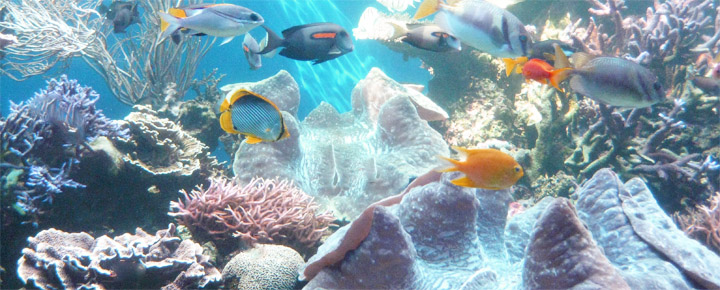
Protecting Hawaii’s Coral Reefs
Reducing Carbon Emissions and Combating Climate Change
One of the most critical steps in protecting Hawaii’s coral reefs is to reduce carbon emissions and combat climate change. This can be achieved through various measures, such as transitioning to renewable energy sources, promoting energy efficiency, and adopting sustainable transportation options. As carbon dioxide emissions continue to contribute to ocean warming and acidification, addressing climate change at a global scale becomes paramount to the preservation of coral reef ecosystems.
Establishing Marine Protected Areas
Establishing marine protected areas (MPAs) is a crucial tool in protecting Hawaii’s coral reefs. MPAs provide a sanctuary for marine life and habitats, allowing them to recover and thrive. By designating specific areas where fishing and other extractive activities are restricted or regulated, MPAs help preserve biodiversity, maintain the ecological balance, and support the long-term resilience of coral reef ecosystems.
Implementing Effective Pollution Control Measures
To safeguard Hawaii’s coral reefs, it is important to implement effective pollution control measures. This includes reducing pollution from land-based activities, such as agriculture, urban development, and industry, that can introduce harmful substances and pollutants into coastal waters. Implementing stricter regulations, promoting sustainable agriculture practices, and improving wastewater treatment are all essential steps in minimizing pollution and its detrimental effects on coral reef health.
Promoting Education and Awareness
Educating the public and raising awareness about the importance of coral reef conservation are crucial aspects of protecting Hawaii’s coral reefs. By providing comprehensive educational programs in schools and communities, individuals can develop a deeper understanding of the ecological, economic, and cultural significance of coral reefs. This knowledge empowers them to make informed choices and take actions that contribute to the preservation of these delicate ecosystems.
Collaborating with Local Communities and Stakeholders
Collaboration with local communities and stakeholders is essential for the effective protection of Hawaii’s coral reefs. Engaging local communities in decision-making processes and fostering partnerships with indigenous communities helps ensure that conservation efforts are inclusive, culturally sensitive, and sustainable. By involving all relevant stakeholders, including government agencies, non-governmental organizations, businesses, and local residents, a collective approach can be adopted to tackle the multifaceted challenges facing Hawaii’s coral reefs.
Successful Conservation Initiatives in Hawaii
Creation of Papahānaumokuākea Marine National Monument
The establishment of the Papahānaumokuākea Marine National Monument in 2006 stands as a significant conservation initiative in Hawaii. This vast protected area spans over 582,578 square miles and includes extensive coral reef ecosystems. By designating this region as a national monument, critical habitat for countless marine species is safeguarded, and destructive human activities are restricted. The monument serves as a model for successful marine conservation efforts in Hawaii and highlights the importance of preserving and protecting coral reefs.
Community-based Efforts to Restore and Protect Coral Reefs
Community-based efforts have been instrumental in the restoration and protection of coral reefs in Hawaii. Local communities, organizations, and volunteers have actively participated in initiatives such as coral reef restoration projects, beach clean-ups, and education programs. By actively engaging and involving local residents, these community-based efforts not only contribute to the physical restoration of coral reefs but also foster a sense of stewardship and local ownership in the conservation of these vital ecosystems.
Partnerships between Government, NGOs, and Businesses
Partnerships between government agencies, non-governmental organizations (NGOs), and businesses have played a crucial role in the conservation of Hawaii’s coral reefs. These collaborations leverage the expertise, resources, and influence of various stakeholders to implement effective conservation strategies and initiatives. Together, they can address the diverse challenges faced by coral reefs and develop integrated approaches that consider both ecological and socioeconomic factors.
Enforcement of Regulations and Fishing Restrictions
Enforcement of regulations and fishing restrictions is essential for the success of coral reef conservation in Hawaii. Strict enforcement helps deter destructive fishing practices, illegal harvesting, and other harmful activities that can degrade coral reef ecosystems. By effectively implementing and monitoring regulations, authorities can ensure that the laws protecting coral reefs are respected and that those found in violation are held accountable.
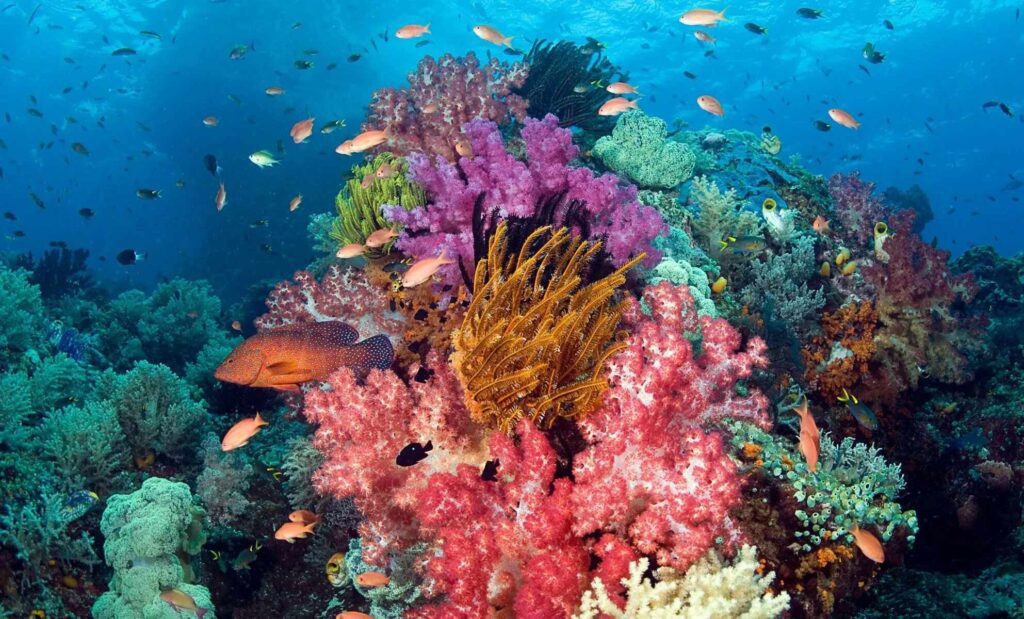
Engaging Local Communities
Educational Programs in Schools and Communities
Engaging local communities through educational programs in schools and communities is vital for coral reef conservation in Hawaii. Incorporating marine science and environmental education into the curriculum equips students with the knowledge and skills to understand the value of coral reefs and the actions they can take to protect them. Outreach programs that involve hands-on activities, field trips, and community events help disseminate information and foster a sense of responsibility among community members.
Training and Employment Opportunities for Local Residents
Providing training and employment opportunities for local residents in coral reef conservation efforts can have significant positive impacts. By creating pathways for local communities to be actively involved in restoration projects, scientific research, and ecotourism, individuals can develop a deeper connection to their natural surroundings and become ambassadors for coral reef conservation. This approach not only benefits the local economy but also empowers communities to take an active role in safeguarding their natural resources.
Involving Indigenous Communities in Conservation Efforts
Recognizing the importance of indigenous knowledge and involvement is critical when engaging in coral reef conservation efforts in Hawaii. Indigenous communities have a deep connection to the land and sea and possess valuable traditional knowledge about the natural environment. By involving indigenous communities in decision-making processes, respecting their cultural practices, and incorporating their perspectives into conservation initiatives, we can ensure that their voices and contributions are acknowledged and honored.
Promoting Sustainable Tourism Practices
Promoting sustainable tourism practices is another way to engage local communities in coral reef conservation. By encouraging tourism operators to adopt sustainable practices, such as employing local guides, supporting community-based tourism initiatives, and minimizing the ecological footprint of visitors, the tourism industry can actively contribute to the protection of coral reefs. This approach not only creates economic benefits for local communities but also promotes a sense of pride and ownership in conserving the natural resources on which their livelihoods depend.
The Role of Government and Policy
Enacting and Enforcing Protective Legislation
The role of government and policy in protecting Hawaii’s coral reefs is crucial. Governments must enact and enforce protective legislation and regulations that safeguard coral reef ecosystems. This includes laws that address fishing practices, pollution control, coastal development, and climate change mitigation. By ensuring compliance and enforcement of these regulations, governments can provide a framework for the sustainable management and preservation of coral reefs.
Investing in Scientific Research and Monitoring
Investing in scientific research and monitoring is essential for understanding the complex dynamics of Hawaii’s coral reefs and developing effective conservation strategies. Governments should allocate resources to support research institutions, scientists, and monitoring programs that collect valuable data on coral reef health, biodiversity, and the impacts of environmental stressors. This scientific knowledge serves as the basis for evidence-based decision-making and the development of targeted conservation efforts.
Funding Conservation Projects and Initiatives
Governments play a critical role in funding coral reef conservation projects and initiatives. By allocating funds for research, restoration programs, education campaigns, and the establishment of marine protected areas, governments can actively support and promote the long-term preservation of Hawaii’s coral reefs. Public and private partnerships can also be forged to leverage additional funding sources and maximize the impact of conservation efforts.
Collaborating with International Partners
Given the global nature of climate change and the interconnectedness of marine ecosystems, collaboration with international partners is essential for the protection of Hawaii’s coral reefs. Governments should actively engage in international agreements and partnerships that aim to address climate change, reduce pollution, and protect marine biodiversity. By working together on a global scale, countries can share best practices, knowledge, and resources to enhance the conservation of coral reef ecosystems.
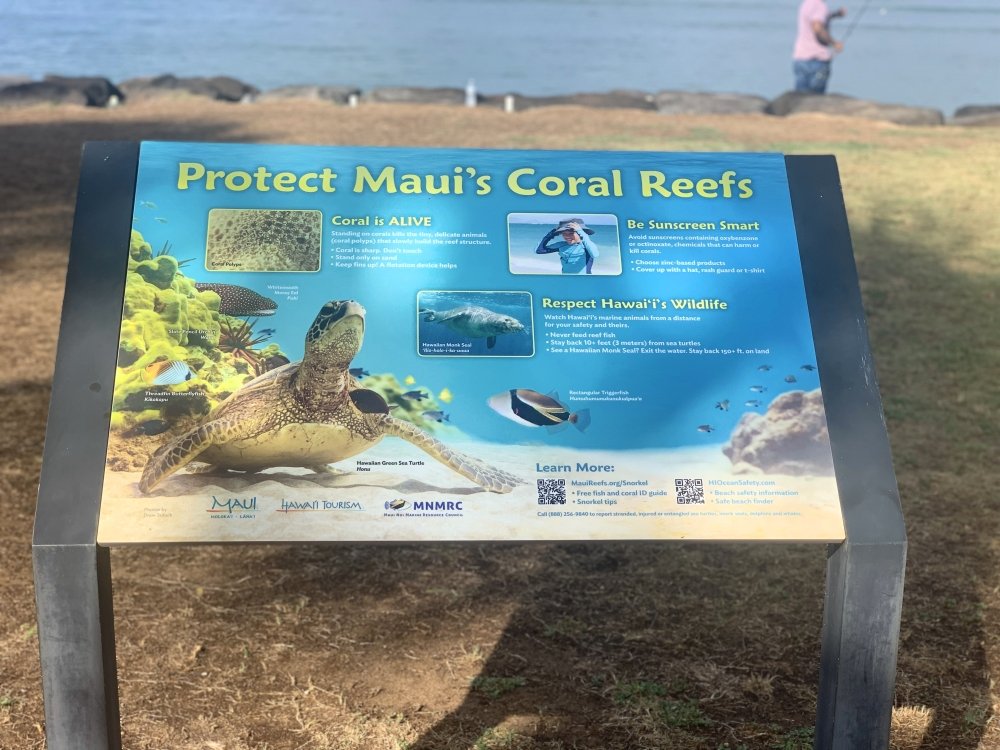
Tourism Industry’s Responsibility
Encouraging Sustainable Tourism Practices
The tourism industry has a responsibility to encourage and promote sustainable tourism practices that minimize the impact on Hawaii’s coral reefs. Tour operators, accommodations, and travel agencies should prioritize environmentally friendly practices, such as reducing waste, conserving water, and minimizing energy consumption. By integrating sustainability into their operations, the tourism industry can contribute to the conservation of coral reefs while providing memorable and responsible experiences for visitors.
Supporting Eco-friendly Accommodations
Supporting eco-friendly accommodations is a crucial aspect of sustainable tourism in Hawaii. Hotels and resorts should adopt green building practices, use renewable energy sources, and promote water and energy conservation. Additionally, minimizing the use of single-use plastics, implementing recycling programs, and supporting local sustainable initiatives can have a positive impact on the environment and reduce the ecological footprint of the tourism industry.
Promoting Responsible Snorkeling and Diving
The tourism industry can play an active role in promoting responsible snorkeling and diving practices among visitors. Education and awareness campaigns should be developed and implemented, highlighting the importance of respecting coral reefs, providing guidelines for responsible behavior, and promoting the use of reef-safe sunscreens and environmentally friendly dive operators. By incorporating these practices into their operations and educating their customers, the tourism industry can contribute to the long-term preservation of coral reef ecosystems.
Educating Visitors about Coral Reef Conservation
The tourism industry has a unique opportunity to educate visitors about the importance of coral reef conservation. By integrating educational initiatives into visitor centers, tour experiences, and interpretive signage, tourists can gain a deeper understanding of the ecological, economic, and cultural significance of Hawaii’s coral reefs. By raising awareness and fostering a sense of connection and responsibility, the tourism industry can create a positive impact on visitor behavior and contribute to the preservation of these fragile ecosystems.
Conclusion
The urgency of respecting and protecting Hawaii’s coral reefs cannot be overstated. As we have explored in this comprehensive article, these fragile ecosystems hold immense ecological, economic, cultural, and historical significance. From sustaining biodiversity and supporting marine life to providing coastal protection and generating tourism revenue, coral reefs are a vital component of Hawaii’s natural and cultural heritage.
To ensure the continued health and survival of Hawaii’s coral reefs, it is essential for all individuals, communities, industries, and governments to take collective responsibility for their conservation. By adopting responsible practices, supporting sustainable initiatives, and actively engaging in the protection of these vulnerable ecosystems, we can safeguard them for future generations.
Preserving Hawaii’s coral reefs offers countless benefits, from maintaining healthy marine ecosystems and supporting sustainable livelihoods to fostering cultural heritage and promoting sustainable tourism practices. Let us all recognize the importance of these incredible natural wonders and work together to respect, protect, and conserve Hawaii’s coral reefs for the benefit of all.
